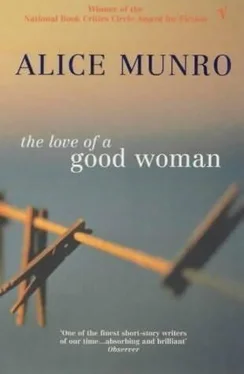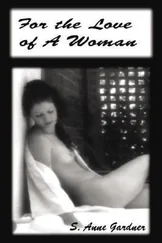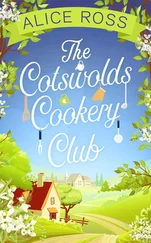Alice Munro - The Love Of A Good Woman
Здесь есть возможность читать онлайн «Alice Munro - The Love Of A Good Woman» весь текст электронной книги совершенно бесплатно (целиком полную версию без сокращений). В некоторых случаях можно слушать аудио, скачать через торрент в формате fb2 и присутствует краткое содержание. Жанр: Современная проза, на английском языке. Описание произведения, (предисловие) а так же отзывы посетителей доступны на портале библиотеки ЛибКат.
- Название:The Love Of A Good Woman
- Автор:
- Жанр:
- Год:неизвестен
- ISBN:нет данных
- Рейтинг книги:4 / 5. Голосов: 1
-
Избранное:Добавить в избранное
- Отзывы:
-
Ваша оценка:
- 80
- 1
- 2
- 3
- 4
- 5
The Love Of A Good Woman: краткое содержание, описание и аннотация
Предлагаем к чтению аннотацию, описание, краткое содержание или предисловие (зависит от того, что написал сам автор книги «The Love Of A Good Woman»). Если вы не нашли необходимую информацию о книге — напишите в комментариях, мы постараемся отыскать её.
The Love Of A Good Woman — читать онлайн бесплатно полную книгу (весь текст) целиком
Ниже представлен текст книги, разбитый по страницам. Система сохранения места последней прочитанной страницы, позволяет с удобством читать онлайн бесплатно книгу «The Love Of A Good Woman», без необходимости каждый раз заново искать на чём Вы остановились. Поставьте закладку, и сможете в любой момент перейти на страницу, на которой закончили чтение.
Интервал:
Закладка:
“Smart bugger, aren’t you? Well, all I got to say to you is better watch out.”
Then if Cece looked back at him, or maybe if he didn’t look back, or if he dropped the egg lifter or set it down with a clatter- or even if he was sliding around being extra cautious about not dropping anything and not making a noise-his father was apt to start showing his teeth and snarling like a dog. It would have been ridiculous-it was ridiculous-except that he meant business. A minute later the food and the dishes might be on the floor, and the chairs or the table overturned, and he might be chasing Cece around the room yelling how he was going to get him this time, flatten his face on the hot burner, how would he like that? You would be certain he’d gone crazy. But if at this moment a knock came at the door-if a friend of his arrived, say, to pick him up- his face would reassemble itself in no time and he would open the door and call out the friend’s name in a loud bantering voice.
“I’ll be with you in two shakes. I’d ask you in, but the wife’s been pitching the dishes around again.”
He didn’t intend this to be believed. He said such things in order to turn whatever happened in his house into a joke.
Cece’s mother asked him if the weather was warming up and where he had been that morning.
“Yeah,” he said, and, “Out on the flats.”
She said that she’d thought she could smell the wind on him.
“You know what I’m going to do right after we eat?” she said. “I’m going to take a hot-water bottle and go right back to bed and maybe I’ll get my strength back and feel like doing something.”
That was what she nearly always said she was going to do, but she always announced it as if it was an idea that had just occurred to her, a hopeful decision.
Bud Salter had two older sisters who never did anything useful unless his mother made them. And they never confined their hair arranging, nail polishing, shoe cleaning, making up, or even dressing activities to their bedrooms or the bathroom. They spread their combs and curlers and face powder and nail polish and shoe polish all over the house. Also they loaded every chair back with their newly ironed dresses and blouses and spread out their drying sweaters on towels on every clear space of floor. (Then they screamed at you if you walked near them.) They stationed themselves in front of various mirrors-the mirror in the hall coat stand, the mirror in the dining-room buffet, and the mirror beside the kitchen door with the shelf underneath always loaded with safety pins, bobby pins, pennies, buttons, bits of pencils. Sometimes one of them would stand in front of a mirror for twenty minutes or so, checking herself from various angles, inspecting her teeth and pulling her hair back then shaking it forward. Then she would walk away apparently satisfied or at least finished-but only as far as the next room, the next mirror, where she would begin all over again just as if she had been delivered a new head.
Right now his older sister, the one who was supposed to be good-looking, was taking the pins out of her hair in front of the kitchen mirror. Her head was covered with shiny curls like snails. His other sister, on orders from his mother, was mashing the potatoes. His five-year-old brother was sitting in place at the table, banging his knife and fork up and down and yelling, “Want some service. Want some service.”
He got that from their father, who did it for a joke.
Bud passed by his brother’s chair and said quietly, “Look. She’s putting lumps in the mashed potatoes again.”
He had his brother convinced that lumps were something you added, like raisins to rice pudding, from a supply in the cupboard.
His brother stopped chanting and began complaining.
“I won’t eat none if she puts in lumps. Mama, I won’t eat none if she puts lumps.”
“Oh, don’t be silly,” Bud’s mother said. She was frying apple slices and onion rings with the pork chops. “Quit whining like a baby.”
“It was Bud got him started,” the older sister said. “Bud went and told him she was putting lumps in. Bud always tells him that and he doesn’t know any better.”
“Bud ought to get his face smashed,” said Doris, the sister who was mashing the potatoes. She didn’t always say such things idly-she had once left a claw scar down the side of Bud’s cheek.
Bud went over to the dresser, where there was a rhubarb pie cooling. He took a fork and began carefully, secretly prying at it, letting out delicious steam, a delicate smell of cinnamon. He was trying to open one of the vents in the top of it so that he could get a taste of the filling. His brother saw what he was doing but was too scared to say anything. His brother was spoiled and was defended by his sisters all the time-Bud was the only person in the house he respected.
“Want some service,” he repeated, speaking now in a thoughtful undertone.
Doris came over to the dresser to get the bowl for the mashed potatoes. Bud made an incautious movement, and part of the top crust caved in.
“So now he’s wrecking the pie,” Doris said. “Mama-he’s wrecking your pie.”
“Shut your damn mouth,” Bud said.
“Leave that pie alone,” said Bud’s mother with a practiced, almost serene severity. “Stop swearing. Stop tattle-telling. Grow up.
Jimmy Box sat down to dinner at a crowded table. He and his father and his mother and his four-year-old and six-year-old sisters lived in his grandmother’s house with his grandmother and his great-aunt Mary and his bachelor uncle. His father had a bicycle-repair shop in the shed behind the house, and his mother worked in Honeker’s Department Store.
Jimmy’s father was crippled-the result of a polio attack when he was twenty-two years old. He walked bent forward from the hips, using a cane. This didn’t show so much when he was working in the shop, because such work often means being bent over anyway. When he walked along the street he did look very strange, but nobody called him names or did an imitation of him. He had once been a notable hockey player and baseball player for the town, and some of the grace and valor of the past still hung around him, putting his present state into perspective, so that it could be seen as a phase (though a final one). He helped this perception along by cracking silly jokes and taking an optimistic tone, denying the pain that showed in his sunken eyes and kept him awake many nights. And, unlike Cece Ferns’s father, he didn’t change his tune when he came into his own house.
But, of course, it wasn’t his own house. His wife had married him after he was crippled, though she had got engaged to him before, and it seemed the natural thing to do to move in with her mother, so that the mother could look after any children who came along while the wife went on working at her job. It seemed the natural thing to the wife’s mother as well, to take on another family-just as it seemed natural that her sister Mary should move in with the rest of them when her eyesight failed, and that her son Fred, who was extraordinarily shy, should continue to live at home unless he found some place he liked better. This was a family who accepted burdens of one kind or another with even less fuss than they accepted the weather. In fact, nobody in that house would have spoken of Jimmy’s father’s condition or Aunt Mary’s eyesight as burdens or problems, any more than they would of Fred’s shyness. Drawbacks and adversity were not to be noticed, not to be distinguished from their opposites.
There was a traditional belief in the family that Jimmy’s grandmother was an excellent cook, and this might have been true at one time, but in recent years there had been a falling off. Economies were practiced beyond what there was any need for now. Jimmy’s mother and his uncle made decent wages and his aunt Mary got a pension and the bicycle shop was fairly busy, but one egg was used instead of three and the meat loaf got an extra cup of oatmeal. There was an attempt to compensate by overdoing the Worcestershire sauce or sprinkling too much nutmeg on the custard. But nobody complained. Everybody praised. Complaints were as rare as lightning balls in that house. And everybody said “Excuse me,” even the little girls said “Excuse me,” when they bumped into each other. Everybody passed and pleased and thank-you’d at the table as if there was company every day. This was the way they managed, all of them crammed so tight in the house, with clothes piled on every hook, coats hung over the banister, and cots set up permanently in the dining room for Jimmy and his uncle Fred, and the buffet hidden under a load of clothing waiting to be ironed or mended. Nobody pounded on the stairsteps or shut doors hard or turned the radio up loud or said anything disagreeable.
Читать дальшеИнтервал:
Закладка:
Похожие книги на «The Love Of A Good Woman»
Представляем Вашему вниманию похожие книги на «The Love Of A Good Woman» списком для выбора. Мы отобрали схожую по названию и смыслу литературу в надежде предоставить читателям больше вариантов отыскать новые, интересные, ещё непрочитанные произведения.
Обсуждение, отзывы о книге «The Love Of A Good Woman» и просто собственные мнения читателей. Оставьте ваши комментарии, напишите, что Вы думаете о произведении, его смысле или главных героях. Укажите что конкретно понравилось, а что нет, и почему Вы так считаете.












